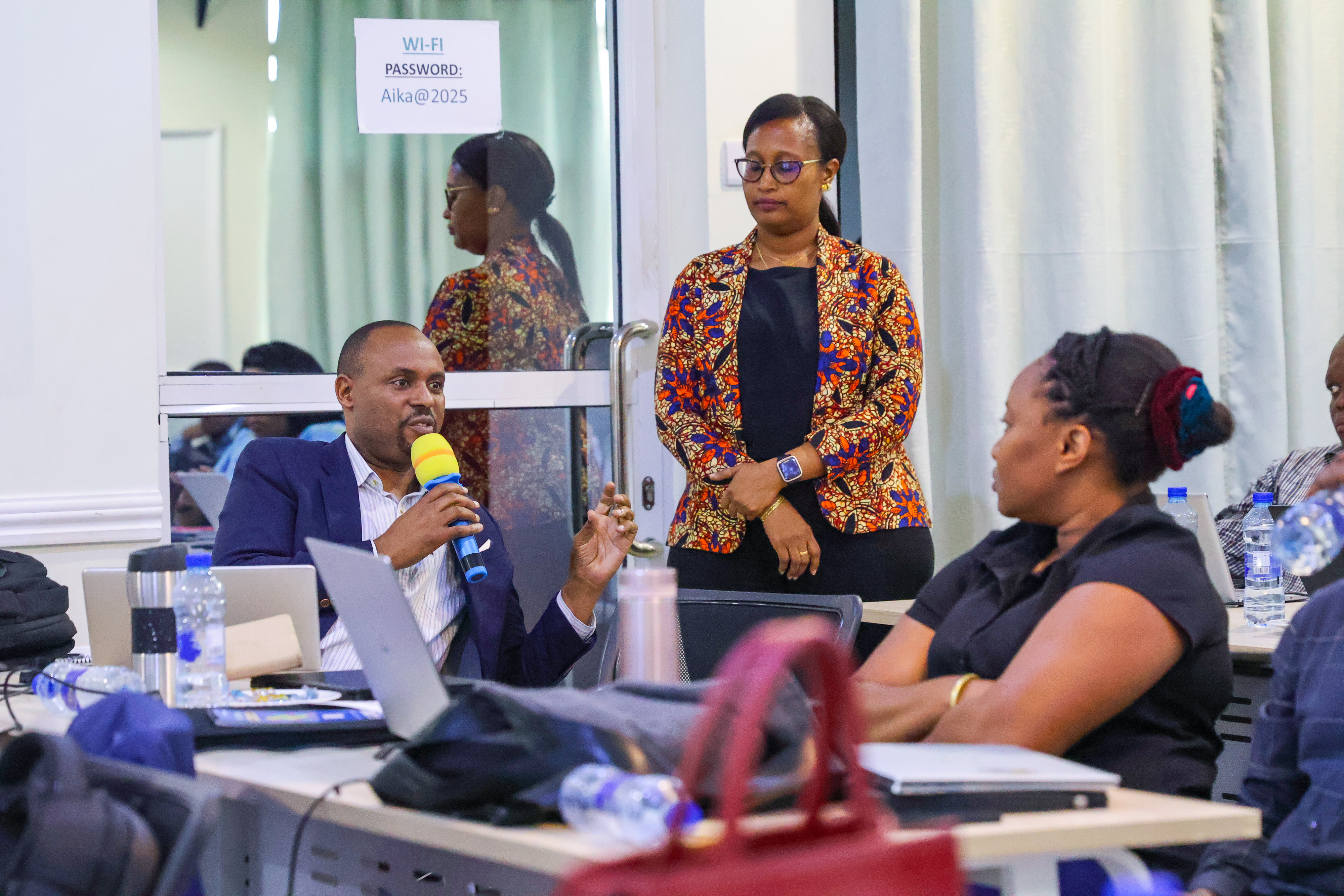
ENGAGEMENT: Ifakara, partners review Tanzania biosafety guidelines

The Ifakara Health Institute joined partners at a stakeholders’ meeting in Morogoro to review Tanzania’s biosafety guidelines for modern biotechnology. The two-day meeting, which took place from April 16–17, 2025, aimed to strengthen the current biosafety guidelines to support cutting-edge scientific research activities and innovations in Tanzania.
The meeting brought together key decision-makers and experts from government ministries, research institutions, and regulatory bodies to discuss how Tanzania can responsibly adopt and manage emerging technologies such as gene/genome editing, synthetic biology, and gene drives.
The meeting opened with remarks from Drs. Dickson Lwetoijera and Brian Tarimo, representatives of IHI’s Institutional Biosafety Committee (IBC), underscored the importance of a strong biosafety framework that support innovation whilst upholding ethical standards and public safety.
Key discussion topics: regulation, capacity, and liability
Discussions during the two-day meeting centered on critical issues, including how current regulations can better accommodate emerging biotechnologies, what institutional gaps need addressing, how academia can support regulatory capacity building, and whether mechanisms for liability and redress require revision.
In addition, stakeholders reviewed the strict liability clause in the existing guidelines and discussed considering potential updates to accommodate confined and field trials of gene-drive-based technologies, beyond contained experiments.
Expected outcomes and policy recommendations
The expected outcome of the meeting is a set of informed recommendations to update national biosafety guidelines, paving the way for responsible and effective implementation of modern biotechnologies to tackle pressing challenges in health, agriculture, and environmental management.
High-level representation across sectors
The meeting was attended by several stakeholders across various sectors, including the Guest of Honour, the Director of Environment and Biosafety Conservation from the Vice President’s Office.
Other representatives were from the Ministry of Health, the President’s Office – Regional Administration and Local Government (PORALG), Ministry of Agriculture, Ministry of Education, Ministry of Livestock and Fisheries, and the Ministry of Natural Resources and Tourism.
Also present were key stakeholders from academic and research institutions, including Sokoine University of Agriculture (SUA), Tanzania Commission for Science and Technology (COSTECH), Tanzania Agriculture Research Institute (TARI), University of Dar es Salaam (UDSM), Dar es Salaam University of Education (DUCE), MUHIMBILI, Tanzania Food and Nutrition Centre (TFNC), Tanzania Plant Health and Pesticide Authority (TPHPA), National Institute for Medical Research (NIMR), National Malaria Control Programme (NMCP), Directorate of Veterinary Services (DVS), Tanzania Livestock Research Institute (TALIRI), Tanzania Veterinary Laboratory Authority (TVLA), Tanzania Wildlife Management Authority (TAWA), Tanzania National Parks (TANAPA), National Environment Management Council (NEMC), and Biosafety Society of Tanzania (BST). were also present.
